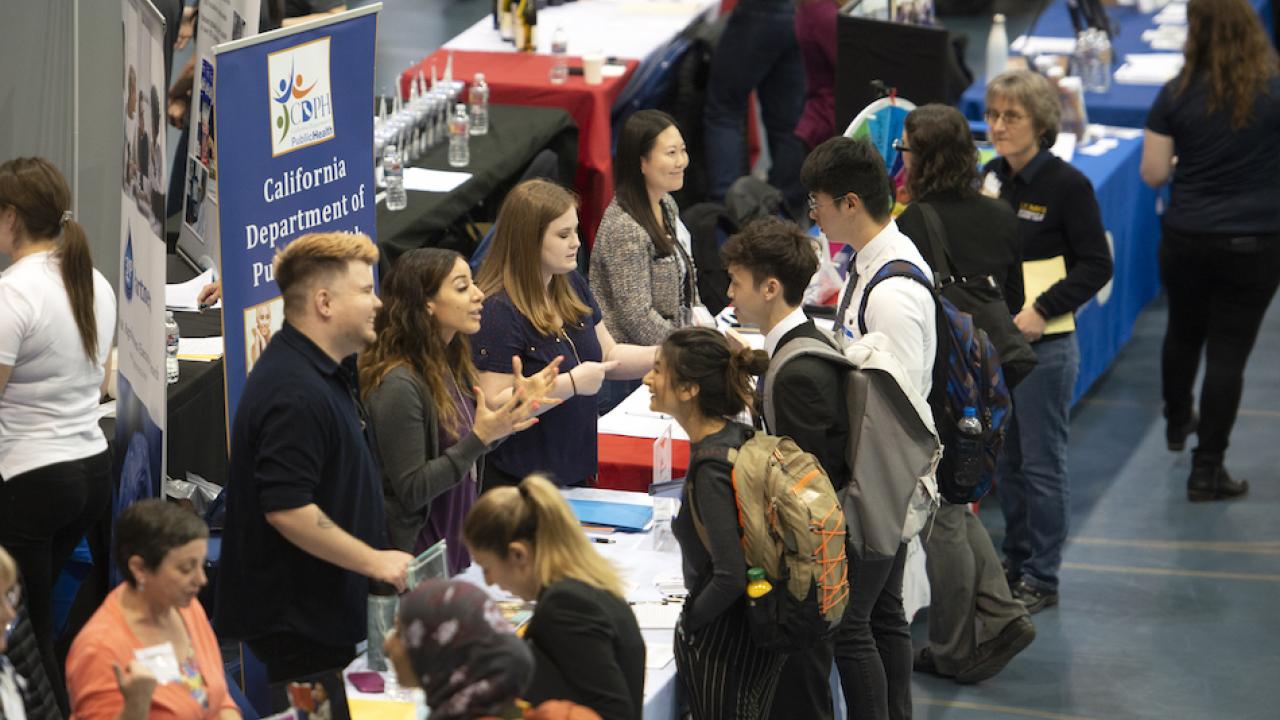As a transfer student, you only have two to three years at your university, so you want to make the most of them. Given the short time you have, it may seem daunting to start considering your career and job search — basically thinking about leaving your new university — before you even start!
But planning is key for transfer students, and using your resources is imperative if you want to graduate with a career position. It’s important to do well in classes, but to get the return on investment that you are probably looking for, first ask yourself: Why you are at your university?
If you came to school to get a career position using your degree, then you’ll need to get hands-on experiences. You want to get clarity on your career choice, build up your resume, gain skills employers are seeking, and expand your professional network in a way that positions you well to secure such a position upon graduation.
1. Transfer students should career-plan right away
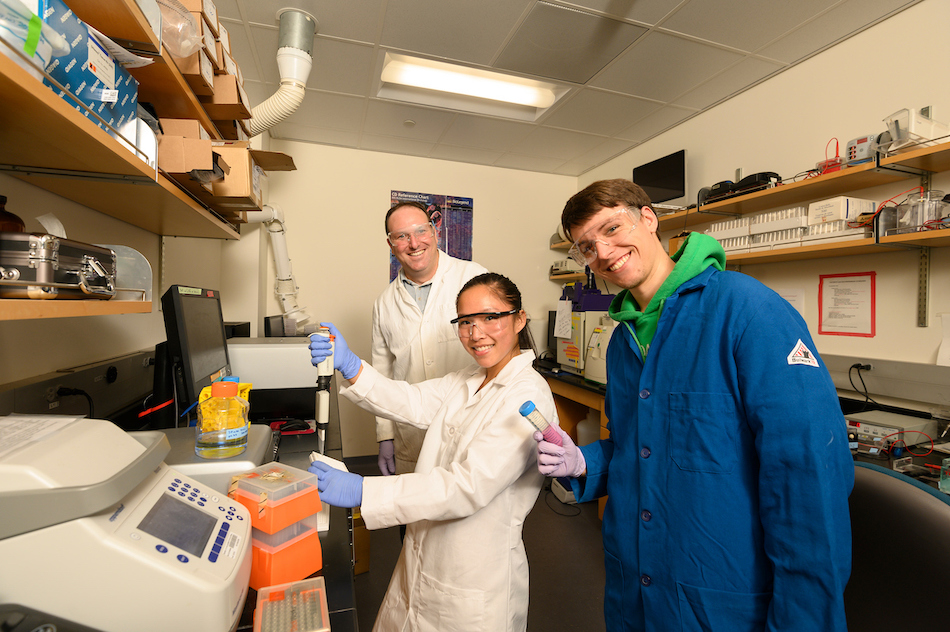
The Internship and Career Center can help you maximize your experience. It’s important to find out your options for jobs, internships and careers and to plan so that you can apply for and get the opportunities you want. We can also make sure your resumes and cover letters are professional and highlight your skills.
Don’t have a lot of experience? That’s okay! You might have projects, leadership or courses to highlight from your community college. The career center can help you with anything career-related — from negotiating an offer to informational interviews (meetings with someone who works in a job, field or organization that interests you).
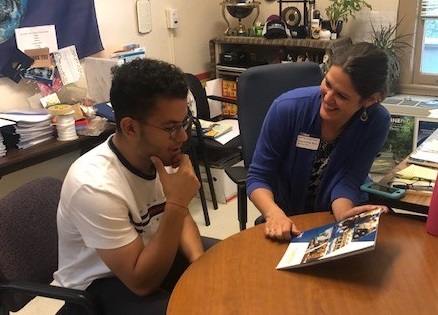
In my role as career advisor, some students meet with me right away in a one-on-one advising session and I’m able to help them clarify their goals and possible resources. I met with one transfer student in the summer before he started as pre-vet. With a plan, he was able to get four different animal-related experiences during the academic year, both on campus and in the community, and apply to vet school by the next summer. He was so excited about all of the opportunities at our university, but also a bit overwhelmed. We were able to go through his options, make a plan, and then he was clear on how to proceed. He also did a great job following up with each possible opportunity and staying on top of deadlines — that was key!
That particular student was clear on his career goals. His experiences helped to confirm that he wanted to go to veterinary school. Other transfer students I meet with are often not sure how their major relates to careers, and career advisors can help with that, too.
Career development isn’t a linear process. Sometimes you discover what you don’t want to do, or get more information about careers you hadn’t known about before, so the plan you have is constantly evolving — and that is normal.
This process can feel even more stressful as a transfer student with a shorter time at your university. UC Davis transfer student Hesham Ahmed, who is also a student intern in the Internship and Career Center, says that he wishes that he had started researching more about the opportunities at his campus as soon as he was admitted. That way, he could have found something more career-focused the summer after his sophomore year.
Students can research online before starting, so don’t wait until you get to campus to start looking into campus opportunities. There are also a lot of opportunities on university campuses that might not have been present at your community college — don’t assume you already know the resources as there are likely a lot more resources at the university you transfer to.
2. Take action, transfer students!
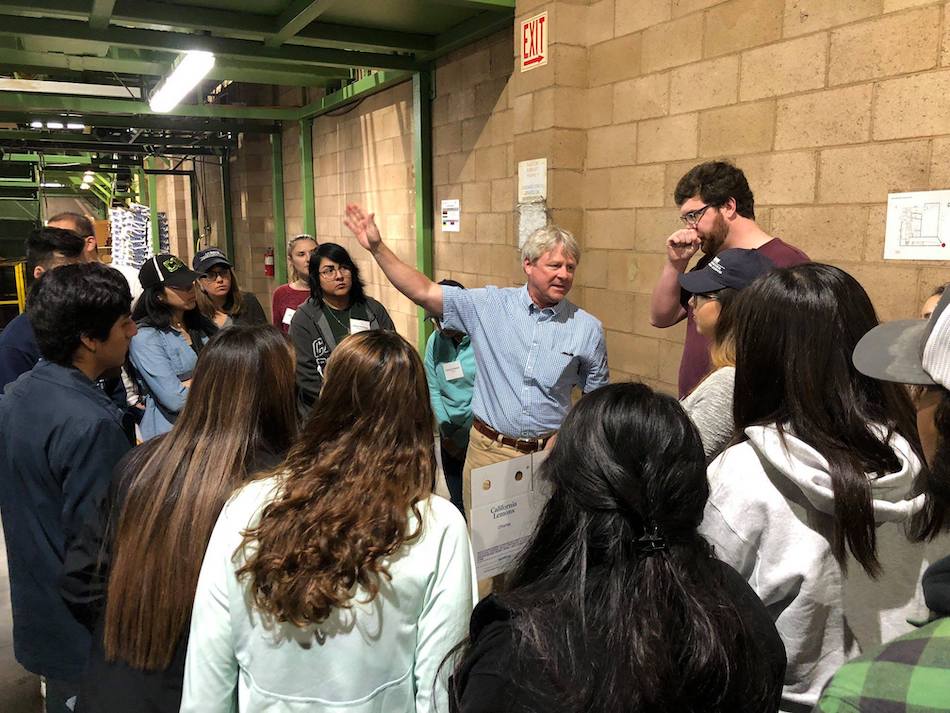
After you are clear on what you want, use the workshops and advising appointments to get job and internship materials like resumes and cover letters polished and ready to submit in your first quarter. Some transfer students are nontraditional age and have a lot of past work experiences. It can be confusing to try to explain those skills in resumes, cover letters and other materials. Meeting with an advisor to clarify the transferrable skills that will relate to your new career can help to improve your materials. Make sure you get experiences including projects, volunteering and interning so that you can refine your skills, build up to your next experience and reflect on your interests, values and strengths.
3. Connect with employers
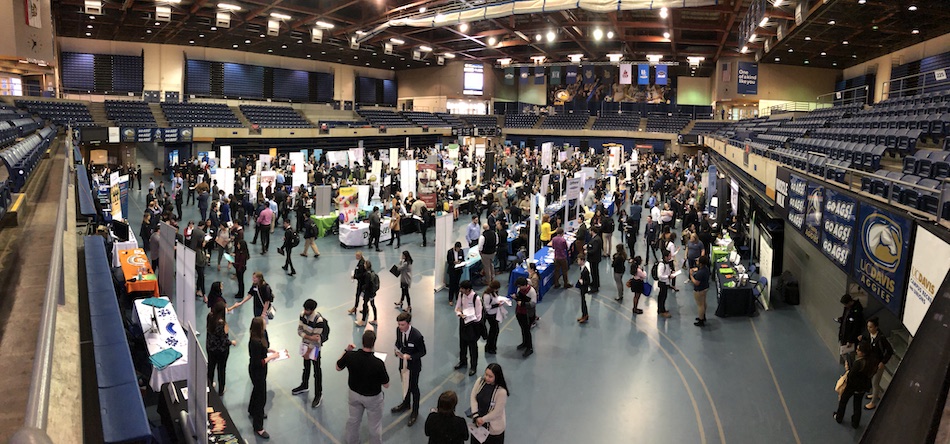
Some transfer students put off their career development until they graduate, thinking that they are busy with academics — and they are! But if you want to graduate with a position, you should start the fall of your senior year because the search can take three to nine months.
There are so many resources for students to network with employers and find out about positions. We host career fairs where more than 150 employers attend, information sessions where employers describe their companies and available positions, career chats where you can speak informally with alumni and other professionals about their career paths. However, you have to plan your time effectively and get these events on your calendar early. Most jobs are not listed; you have to find out about them through your network.
Transfer students often feel like they are behind other students, but that doesn’t have to be the case. A lot of students who start as freshmen explore for a few years and get their requirements done. Transfer students just need to explore quicker and get clear on their goals so they can be focused on the experiences they want.
Remember that you aren’t alone. Resources are here to help you at each step along the way!
Lynn Fowler is a Senior Career Advisor. She is a proud alumnae of UC Davis who holds a Bachelor of Arts degree in Psychology. She also attended Bowling Green State University in Ohio, where she received a Masters of Arts in College Student Personnel, with an emphasis in counseling.
